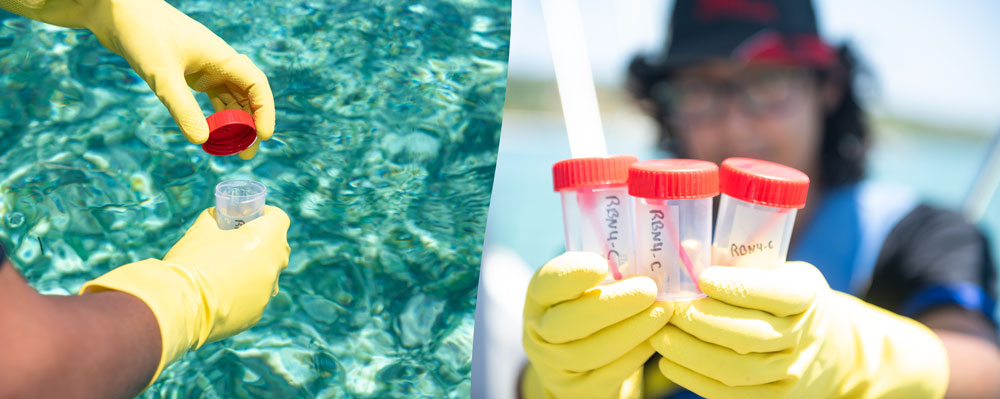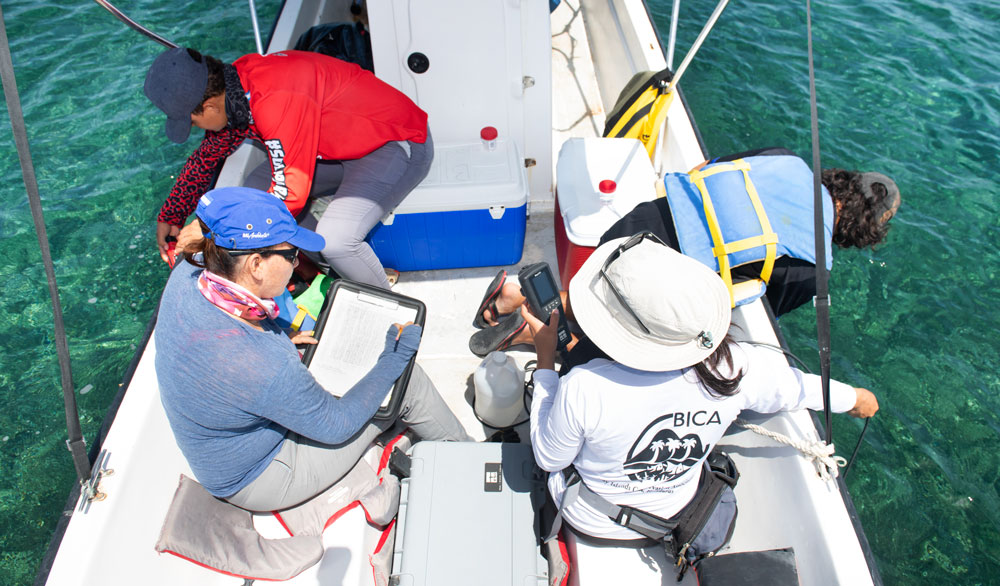CORAL has reached a major milestone and is excited to release the Protocol Handbook for Monitoring Marine Water Quality in the Mesoamerican Reef (MAR) System.
What exactly is the Protocol Handbook?
The first of its kind, this coordinated water quality sampling project is a giant leap forward in giving water quality monitoring the spotlight it deserves. Reef health is directly affected by the quality of water being circulated in and around the MAR, and this guide will help us identify and potentially resolve the major issues contaminating these waters.
While many methods exist, our Western Caribbean Science and Programs teams partnered with others to create a unified methodology for water quality. The document is straightforward and provides a way for everyone to draw from the same framework and toward the same goal…to save our reefs from contaminants deriving from poor water quality.
This protocol was made possible by multiple partners and monitoring efforts across 90 sites in Mexico, Belize, and Honduras.
We’re happy to share our universal water quality monitoring protocol that can be used anywhere and everywhere reefs exist. This labor of love has been a group effort for over a decade, and we believe this protocol will make an immediate impact when implemented correctly and consistently.
Dr. Antonella Rivera
View and save the Protocol Handbook (PDF) here >
Why is unified water quality monitoring such a big deal for reefs?
Reef health is getting worse as years go by. In order to minimize stressors to the reef, we must first understand the cause. Is the decline caused by a lack of fish? Pollution? Sanitation issues?
In recent years, the MAR has been facing a major challenge – an increase in macroalgae that threatens its coral reefs. These blooms grow on corals, prevent larval settlement, and compete for space. This is due to low herbivore populations and nutrient contamination from wastewater management and agricultural activities. To tackle this problem, we need better data on nutrient levels and sources of pollution in the MAR ecosystem.

Cleaner Water = Healthier Reefs
That’s where this coordinated water quality monitoring program comes in.
The program is divided into two phases:
Phase 1 focuses on quantifying the human impacts derived from wastewater in priority sites where tourism has the most impact. Control sites that aren’t influenced by tourism-related fluctuations will also be included to provide quantitative data.
Phase 2 will expand the sampling sites to assess nutrient enrichment from other sources.
The project objective is to gather data with high spatial and temporal resolution at sites where tourism-related sewage is expected to be a dominant pollution source. Five sampling locations have been identified in each of the three most tourism-affected MAR countries – Honduras, Belize, and Mexico. These will be divided into three locations impacted by tourism and two control locations. Water quality parameters will be sampled monthly to quantify any changes in water quality.

Where You Come In
This handbook was created for anyone who wants to get involved in water quality management. Policy-makers, NGOs, water boards, service providers, and beyond are encouraged to interact and implement this protocol. We believe that a consistent approach to monitoring water quality can lead to more resilient reefs.
By monitoring marine water quality, we can assess the health of our oceans and human impact on our marine ecosystem. This helps us to implement mitigation actions to prevent environmental degradation and protect marine life. Let’s all do our part to protect our oceans and preserve them for generations to come!

